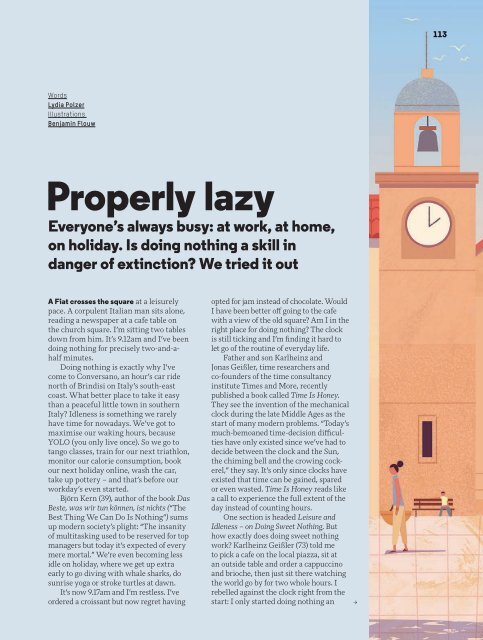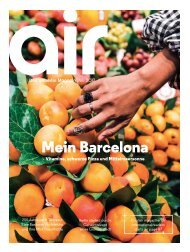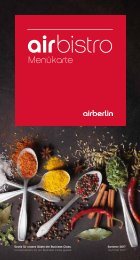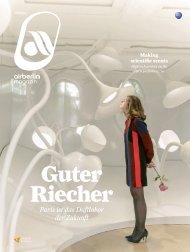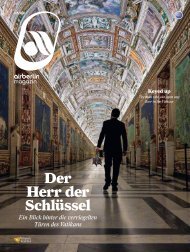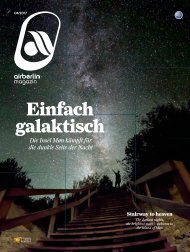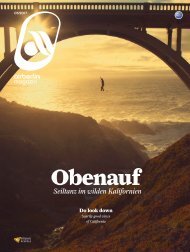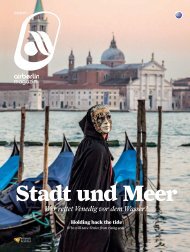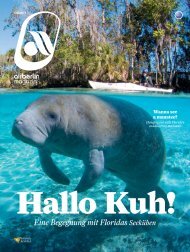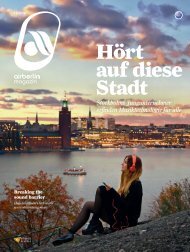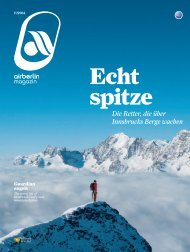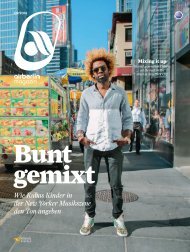Sie wollen auch ein ePaper? Erhöhen Sie die Reichweite Ihrer Titel.
YUMPU macht aus Druck-PDFs automatisch weboptimierte ePaper, die Google liebt.
113<br />
Words<br />
Lydia Polzer<br />
Illustrations<br />
Benjamin Flouw<br />
Properly lazy<br />
Everyone’s always busy: at work, at home,<br />
on holiday. Is doing nothing a skill in<br />
danger of extinction? We tried it out<br />
A Fiat crosses the square at a leisurely<br />
pace. A corpulent Italian man sits alone,<br />
reading a newspaper at a cafe table on<br />
the church square. I’m sitting two tables<br />
down from him. It’s 9.12am and I’ve been<br />
doing nothing for precisely two-and-ahalf<br />
minutes.<br />
Doing nothing is exactly why I’ve<br />
come to Conversano, an hour’s car ride<br />
north of Brindisi on Italy’s south-east<br />
coast. What better place to take it easy<br />
than a peaceful little town in southern<br />
Italy? Idleness is something we rarely<br />
have time for nowadays. We’ve got to<br />
maximise our waking hours, because<br />
YOLO (you only live once). So we go to<br />
tango classes, train for our next triathlon,<br />
monitor our calorie consumption, book<br />
our next holiday online, wash the car,<br />
take up pottery – and that’s before our<br />
workday’s even started.<br />
Björn Kern (39), author of the book Das<br />
Beste, was wir tun können, ist nichts (“The<br />
Best Thing We Can Do Is Nothing”) sums<br />
up modern society’s plight: “The insanity<br />
of multitasking used to be reserved for top<br />
managers but today it’s expected of every<br />
mere mortal.” We’re even becoming less<br />
idle on holiday, where we get up extra<br />
early to go diving with whale sharks, do<br />
sunrise yoga or stroke turtles at dawn.<br />
It’s now 9.17am and I’m restless. I’ve<br />
ordered a croissant but now regret having<br />
opted for jam instead of chocolate. Would<br />
I have been better off going to the cafe<br />
with a view of the old square? Am I in the<br />
right place for doing nothing? The clock<br />
is still ticking and I’m finding it hard to<br />
let go of the routine of everyday life.<br />
Father and son Karlheinz and<br />
Jonas Geißler, time researchers and<br />
co-founders of the time consultancy<br />
institute Times and More, recently<br />
published a book called Time Is Honey.<br />
They see the invention of the mechanical<br />
clock during the late Middle Ages as the<br />
start of many modern problems. “Today’s<br />
much-bemoaned time-decision difficulties<br />
have only existed since we’ve had to<br />
decide between the clock and the Sun,<br />
the chiming bell and the crowing cockerel,”<br />
they say. It’s only since clocks have<br />
existed that time can be gained, spared<br />
or even wasted. Time Is Honey reads like<br />
a call to experience the full extent of the<br />
day instead of counting hours.<br />
One section is headed Leisure and<br />
Idleness – on Doing Sweet Nothing. But<br />
how exactly does doing sweet nothing<br />
work? Karlheinz Geißler (73) told me<br />
to pick a cafe on the local piazza, sit at<br />
an outside table and order a cappuccino<br />
and brioche, then just sit there watching<br />
the world go by for two whole hours. I<br />
rebelled against the clock right from the<br />
start: I only started doing nothing an


